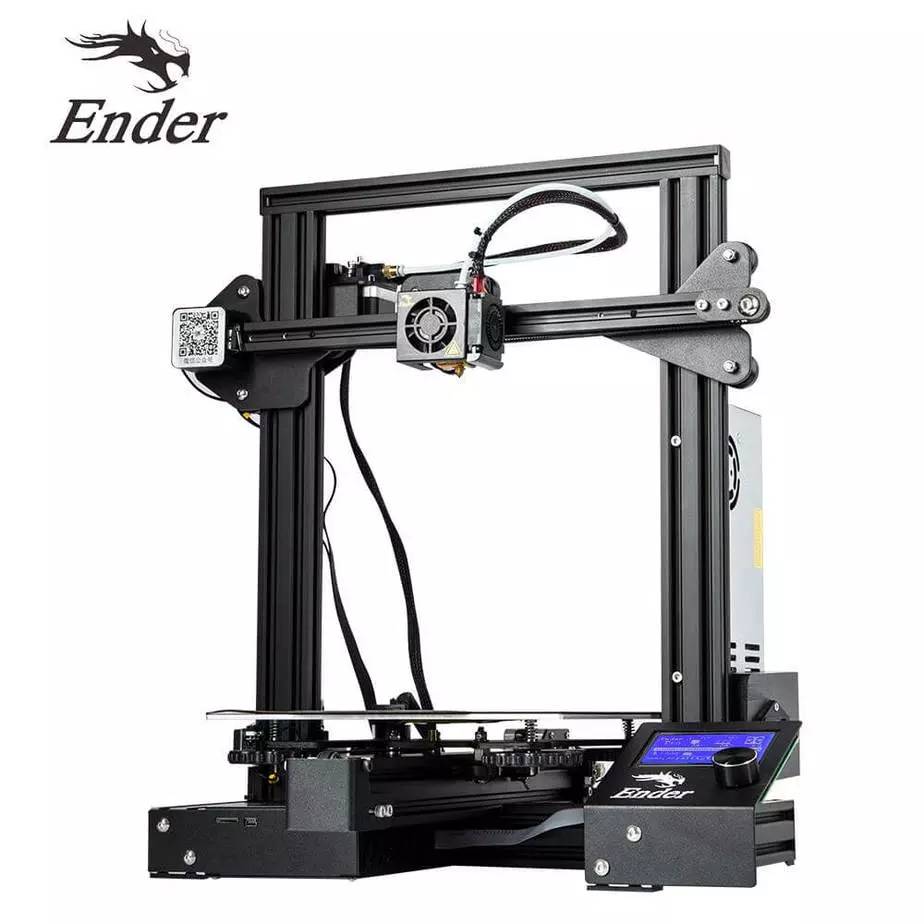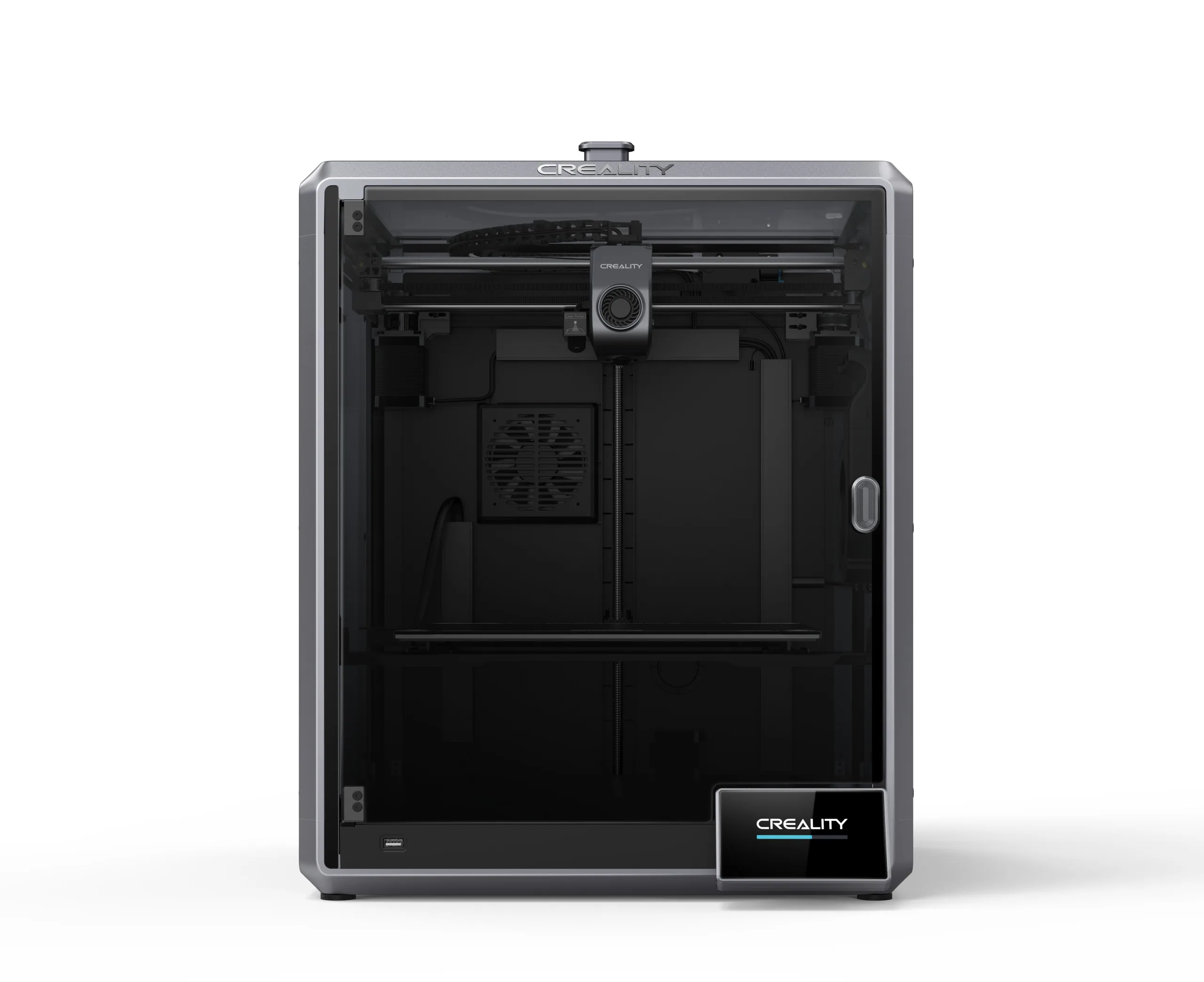Compare Ender 3 PRO vs K1 Max
Comparison between the best 3D printers
Choose the best 3D printer at the best price. The cheapest 3D printers are here.
Buy a 3D printer here with 3D Fila.
 |
 |
|
| Model | Ender 3 PRO[BUY Ender 3 PRO] |
K1 Max[BUY K1 Max] |
| Printing Material | Filament | Filament |
| Buy Filament for Creality 3D Ender 3 PRO | Buy Filament forCreality 3D K1 Max | |
| Estimated price | $258,00 | $1300,00 |
| Manufacturer | Creality 3D | Creality 3D |
| Release Year | 2019 | 2023 |
| Print Volume [mm] | 220x220x250 | 300x300x300 |
| Printer Size [mm] | 440x440x465 | 435x462x526 |
| Weight [kg] | 6,62 | 18 |
| Power Loss Recovery | NO | YES |
| Enclosed printer | NO | YES |
| Bed Leveling | Manual | Automatic |
| Filament End Sensor | NO | YES |
| Bed type | Heated | Heated |
| Power supply system | Bowden | Direct Drive |
| Standard nozzle | 0,4 | 0,4 |
| Maximum Nozzle Temperature [°C] | 255 | 300 |
| Maximum Bed Temperature [°C] | 110 | 100 |
| Maximum printing speed [mm/s] | 180 | 600 |
| Filament holder | YES | YES |
| Camera for supervision | NO | NO |
| Recommended filaments | PLA, TPU, ABS, PETG | ABS, PLA, PETG, TPU, PA, ASA, PC, PLA-CF, PA-CF, PET-CF |
| Recommended slicers | Cura, Simplify, Slic3r | Creality Print, Cura, Simplify, Slic3r, IdeaMaker e outros |
| Maximum Resolution [mm] | 0,1 | 0,1 |
| Processor | 32 bits | |
| Display | Mono | Display touchscreen 4,3'' |
| Power Supply | 24V / 360W Meanwell | |
| Connectivity | SD / USB | USB / Wi-Fi / Ethernet |
| Operating systems | Windows, Mac, Linux | Windows, Mac, Linux |
| Date of registration in the system | 2021-04-14 | 2023-12-01 |
| Release date | 2019 | 2023 |
| Extra features | The Ender 3 Pro stands out for its beginner-friendly assembly and easily modifiable structure. With a 350W power supply, it heats up quickly and has a simple application that offers good print quality. However, its motors and fans are noisy, and the interface seems outdated. Assembly is accessible, without the need for advanced techniques, and it has integrated belt tensioners. It includes a detailed guide and supports microSD card and USB. | The Creality K1 Max stands out as a fast Core XY 3D printer with a large build volume of 300 x 300 x 300 mm. It is fully enclosed and equipped with AI sensors to prevent print failures. This model has a smooth and flexible PEI build platform, and uses an automatic leveling system with LIDAR, as well as a filament run-out sensor. LAN, Creality Cloud and USB Flash Disk connectivity are available, as well as a 4.3-inch touchscreen interface. The K1 Max is robust, weighing in at 18 kg, and includes an AI camera and limited version of the Klipper firmware. Its motion system is solid and the printer is efficient with high-temperature filaments, but it is not silent. Assembly is 99% complete, requiring only minor adjustments before use. |
| Support for multiple colors and materials (AMS and CFS) | NO | NO |
Notes * |
||
| Cost-benefit | 6 / 10 | 7 / 10 |
| Hardware | 0.5 / 10 | 4.8 / 10 |
| Tela | . | . |
| Print volume | 3 / 10 | 4 / 10 |
| Performance | 1 / 10 | 5 / 10 |
| [BUY Ender 3 PRO] | [BUY K1 Max] |
Conclusion |
| In conclusion, the comparison between the Ender 3 Pro and the K1 Max highlights significant differences in technology, features, and pricing, catering to different user needs. The Ender 3 Pro, being an older and more affordable model, is well-suited for beginners who value cost-effectiveness and simplicity. It offers a manual bed leveling feature and basic connectivity, making it accessible for those new to 3D printing. However, it lacks modern conveniences such as power loss recovery and filament sensors, which could pose challenges during longer prints. On the other hand, the K1 Max represents a substantial upgrade with its advanced features, including automatic bed leveling, built-in sensors to prevent print failures, and a robust design with a larger print volume. Its faster printing speeds and enhanced connectivity options, such as Wi-Fi and Ethernet, cater to more experienced users who require high performance and reliability in their projects. While it comes at a higher price point, the K1 Max offers features that justify the investment for those who print regularly or require high-quality outputs. Ultimately, the choice between these two printers depends on the user's priorities: The Ender 3 Pro is ideal for budget-conscious beginners, while the K1 Max is better suited for professionals or hobbyists seeking advanced functionality and improved performance. Therefore, it's essential to weigh the cost against the specific printing needs to determine the best fit. |

